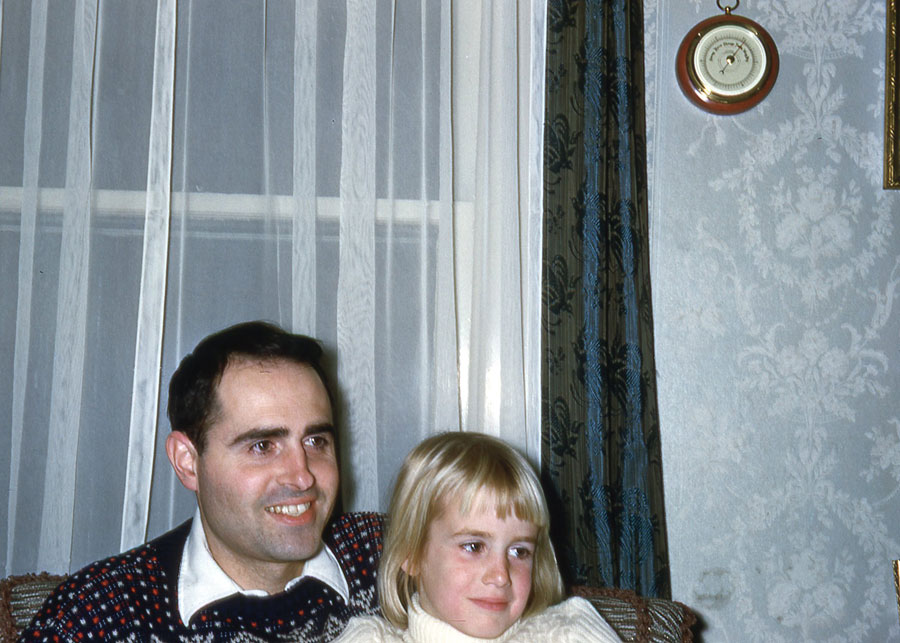
My father died last week.
He had been in poor health for years, suffering with various aches and ailments, undergoing treatments, countless examinations. He was pretty fed up with it all by the time he reached his 89th birthday, when we all came to wish him well, to encourage him to hang on for his 90th.
He didn’t argue with us, but you could see his heart wasn’t in it. All his old friends had already passed on. His failing body denied him the ability to work on his model trains, much less enjoy driving his car or sailing a boat. A lifetime of reading fine print had ruined his eyes. He still loved us, but he just wanted to stop. Yet his body kept going, the old heart pumping, the lungs pulling in air. His bones were still strong, even as his flesh melted away when he refused to eat anymore.
My father was a strong-willed man all his life. His opinions were firm, his beliefs not easily swayed. He worked hard for everything he had. His long career in law began in the early 1950s when he attended law school at the University of Virginia on the G.I. Bill. Like many of his generation, he already had three small children by that time. By the time he retired he had become a judge, and had seven children, a different wife, a handful of grandchildren and two great-grandchildren.
You’d think he would have been a happy man.
But my dad was never able to stop being a father. And being a father for him meant trying to make his children do what he thought would be best for them. I understand this is a common trait among caring parents.
After my dad took my mother to court to have me declared legally emancipated when I was 18, we didn’t speak to each other until the day I called to invite him to my wedding, a little more than a year later. He replied, “Are you asking me or telling me?” At first I didn’t understand the question, but then he made it clear that he expected to be consulted about the man I chose to marry, even though he’d legally washed his hands of me.
Suffice it to say, our relationship was never easy from the time I left home. For years, in the beginning, before I had children of my own, I used to have conversations with him in my head, trying to explain why I felt entitled to lead my own life, make my own choices. I would write letters and never send them. I thought things would never change.
Then my father began a new family and had a new daughter. He delighted in her perfection, her obedience. Her devotion to him was unwavering and he rewarded her with his unlimited support. Hearing about her successes, I was glad he had the pliant squeaky-clean daughter he’d wanted. When she married a very successful man, whose job took him all over the world, my dad was at first happy.
But slowly, slowly, the old man recoiled from the praise heaped on his new son-in-law. Perhaps he felt the sting of being replaced as the alpha male in his daughter’s life. For whatever reason, he began to call me. At first I was taken aback by this. It had been so long since he’d expressed an interest in my life. But when he heard that I was taking college courses again, trying to finish my degree – 30 years in the making – he was enthusiastic and, yes, I could hear it in his voice, even proud of me again.
Slowly, as I learned the humility that only having children of your own can teach you, the conversations with my father became less difficult and more rewarding. We found common ground based on our experiences as adults. We seldom touched on the trials of the past, the divorce, politics, the reckless ’60s, the flaming ’70s. We talked instead of life itself, of how it warps and wounds, how it teaches and heals, how the long road may be rocky, but the views sometimes make it worth all the struggle.
I am grateful that my dad and I recovered the love we started with. He was a wonderful father when I was a young child. In one of the last conversations I had with him, when he was so weak he seldom left his bed, he talked to me of his childhood in Brooklyn, of his first model train setup, of his early boyhood friends, of his beloved Culver Lake in the mountains of Northern New Jersey. He said, “My childhood there was a wonderful childhood.”
That’s what he gave me. Maybe that’s all any parent can hope to give a child. All too soon they grow up and get swept away by the countless unpredictable forces at work in world. If I could talk to my dad today, he would understand exactly what I’m talking about. I’ll be missing him the rest of my life.
He’s moved beyond reach, but I still have things I want to say to him.
Sincere condolences, Susan + Al